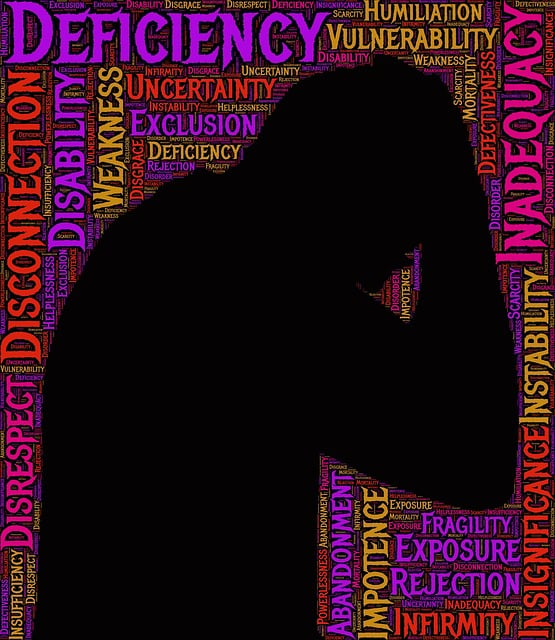Northglenn Trauma Therapy (NGT) in Northglenn, Colorado, provides specialized care for individuals recovering from trauma through evidence-based practices and a supportive environment. After recognizing crisis signs like behavioral changes and anxiety, NGT offers immediate intervention using techniques such as active listening and coping skill development to reduce anxiety and promote resilience. They also offer ongoing support with strategies including Mental Wellness Journaling, Empathy Building, and Self-Care Routine Development for long-term recovery.
In times of crisis, effective intervention strategies are vital. This guide explores essential steps to navigate and support individuals in distress, from recognizing warning signs to implementing post-crisis care. We delve into the role of professionals like Northglenn Trauma Therapy in providing immediate assistance and long-term recovery guidance. Effective communication techniques and assessment tools are highlighted, offering a comprehensive approach to crisis intervention. Learn how to foster resilience and promote healing after a traumatic event, with a focus on local resources available in Northglenn.
- Understanding Crisis Intervention: A Brief Overview
- Identifying Signs and Assessing the Situation
- Northglenn Trauma Therapy: A Local Resource
- Effective Communication Techniques for Interventions
- Post-Crisis Support and Follow-up Strategies
Understanding Crisis Intervention: A Brief Overview

Crisis intervention is a critical process aimed at providing immediate support to individuals facing severe distress or traumatic events. It involves a range of strategies and techniques designed to stabilize the person, meet their immediate needs, and help them navigate challenging situations. At Northglenn Trauma Therapy, we recognize that every crisis is unique, requiring tailored interventions. Our therapists are trained in various approaches to offer effective guidance during such critical moments.
Understanding crisis intervention means recognizing its role in promoting resilience and mitigating long-term negative impacts of trauma or stress. Techniques often include active listening, emotional support, and teaching coping skills. Additionally, compassion cultivation practices have shown promise in fostering empathy and reducing anxiety relief, which is a key component in managing stressful situations effectively.
Identifying Signs and Assessing the Situation

Recognizing signs of crisis is a pivotal step in effective intervention, and Northglenn Trauma Therapy emphasizes the importance of acute observation. Behavioral changes, sudden mood swings, or increased anxiety levels can be early indicators of an individual’s struggle. Professionals should also pay attention to any references to death, suicide, or self-harm, both direct and indirect. These signs necessitate a careful assessment of the situation, considering recent life events, personal history, and existing mental health conditions.
Assessing the severity and context of the crisis is crucial. Is it a one-time incident or part of a recurring pattern? Does it stem from an acute stressor or chronic issues? The environment plays a role too; a safe, supportive space facilitates better communication and understanding. By integrating positive thinking exercises, compassion cultivation practices, and stress management workshops within the assessment process, Northglenn Trauma Therapy promotes a holistic approach, aiming to not only address the crisis but also empower individuals with long-term coping strategies.
Northglenn Trauma Therapy: A Local Resource

In the heart of Northglenn, Colorado, a beacon of hope and healing stands ready to assist those navigating trauma—the Northglenn Trauma Therapy (NGT) center. This local resource offers specialized services designed to empower individuals and communities affected by traumatic experiences. With a team of dedicated therapists, NGT provides evidence-based approaches tailored to address complex emotional challenges stemming from past traumas.
The therapy center recognizes the profound impact trauma can have on an individual’s ability to function in daily life. Therefore, their practice incorporates elements of Emotional Intelligence to foster understanding and self-awareness. Additionally, NGT actively engages in Community Outreach Program Implementation, ensuring accessibility to those who might otherwise face barriers to seeking help. Through these initiatives, Northglenn Trauma Therapy strives to enhance emotional regulation skills, enabling clients to overcome adversity and build resilience.
Effective Communication Techniques for Interventions

Post-Crisis Support and Follow-up Strategies

After an individual has received crisis intervention, providing ongoing support and follow-up care is vital to their long-term recovery. This phase is crucial in helping them rebuild and regain a sense of stability and control over their lives. Northglenn Trauma Therapy offers several strategies tailored for post-crisis support, focusing on both professional guidance and self-help practices.
One effective approach involves implementing Mental Wellness Journaling Exercise Guidance. Encourage individuals to document their thoughts, emotions, and experiences in a journal. This practice allows them to reflect on their journey, identify patterns, and gain insights into their mental health. Additionally, Empathy Building Strategies can foster understanding and connection. Training individuals to recognize and validate others’ feelings creates supportive environments, encouraging open communication and strengthening social connections, all of which are essential components of Self-Care Routine Development for Better Mental Health.
In light of the above discussions, crisis intervention strategies are a vital tool in helping individuals navigate challenging situations. By understanding the signs, effectively communicating, and providing post-crisis support, we can make a significant difference in someone’s life. Northglenn Trauma Therapy serves as a valuable local resource, offering specialized guidance to foster resilience and recovery. Remember that every situation is unique, so tailoring these strategies to individual needs is key. Effective crisis intervention not only assists those in immediate distress but also contributes to long-term mental health and well-being.














